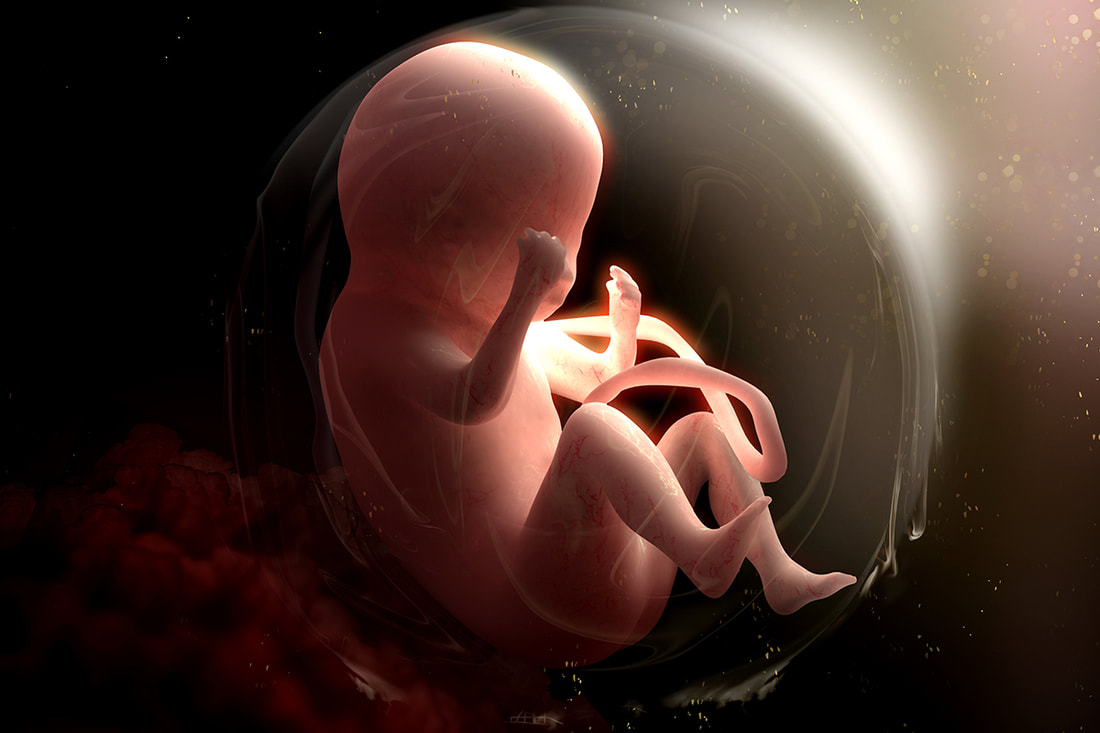 Purpose of our existence The key to understanding the purpose of humankind’s existence lies in the verse of the Quran where Allah ﷻ informs us why He created us: “And [tell them that] I have not created the jinn (invisible beings) and men to any end other than that they may [know and] worship Me. No sustenance do I ever demand of them, nor do I demand that they feed Me: for, verily, God Himself is the Provider of all sustenance, the Lord of all might, the Eternal!”[1] Muhammad Asad in his Message of the Quran comments on this verse: “Thus, the innermost purpose of the creation of all rational beings is their cognition (maarifah) of the existence of God and, hence, their conscious willingness to conform their own existence to whatever they may perceive of His will and plan: and it is this twofold concept of cognition and willingness that gives the deepest meaning to what the Qur’an describes as "worship" (‘ibadah). As the next verse shows, this spiritual call does not arise from any supposed "need' - on the part of the Creator, who is self-sufficient and infinite in His power, but is designed as an instrument for the inner development of the worshipper, who, by the act of his conscious self-surrender to the all-pervading Creative Will, may hope to come closer to an understanding of that Will and, thus, closer to God Himself.”[2] In a hadith e qudsi (sacred tradition), Prophet Muhammad ﷺ informed that Allah ﷻ said: “I was a hidden treasure; then I wished to become known. Then I created the creation, so that I may be known.”[4] These words help us better understand what Asad explained, that the ultimate purpose of human existence is to know Allah ﷻ by accepting His will through obedience of His commandments through what He revealed which eventually causes us to be closer to Him, and understanding Him, ultimately fulfilling the purpose of our existence and benefiting us in this world and the hereafter. A treasure that is hidden which one seeks is worth seeking for when found gives abundant happiness and joy, and the state of inner joy and happiness that humankind seeks on earth is truly and only possible through accepting will of Allah ﷻ. A glimpse of such realization may be understood in the words of Hazrat Ali Ibn Abi Talib (alaihi salaam) who while worshiping would say: “Oh Allah I worship You not because I greed your paradise, Oh Allah I worship You not because I fear your hell fire. I worship You because You are worthy of worship.” Reference: [1] Al Quran 51:56 – Asad Translation [2] Surah Adh-Dhariyat - Asad 1980 [3] A term used for saints in Islamic tradition. [4] Not found in the authenticated books of hadith. Widely quoted in sufi gatherings.
0 Comments
 Islamic Roots of Sigmund Freud's Psychoanalytical Theory Human Soul - Modern Psychology calls it Psyche, Islam divides it in to Nafs (Evil Commanding Soul) and Ruh (Spirit or Upper Soul). Allah ﷻ created this for our intellectual and spiritual progress, which ultimately fulfills the purpose of our existence. Modern psychology divides Psyche in to three parts as per Psychoanalytical Theory of Sigmund Freud. The following analysis proves Islamic roots of Freudan Theory: Id – Ego – Superego Dr. Israr Ahmad, 21st century Islamic scholar, theologian and philosopher compares the Id - Ego - Superego to Islamic concepts of Nafs - Qalb (The Heart) – Ruh. The explanation under each is interestingly also found, with much details, in the classical work called Ihya Ulum id-deen of Imam Ghazali[1]. Id - Demands immediate satisfaction of its desires to fulfill its bodily needs/wants of food/sexual drive or whatever desires occur from it. Dr. Israr refers to Nafs as the primal instinct just like the Id is hedonistic; it seeks pleasure. Imam Ghazali calls it passion carrying evil attributes such as anger, greed, jealousy etc. Struggle (jihad) against its tendencies is called greater struggle (jihad al-akbar) in Islam. As per Al Quran 12:53 unrestrained obedience to it results in soul taking the form of Nafse Amara Bissu (Evil Commanding Soul). Ego - Judgmental before action and intervenes between the Id and its object of satisfaction. It works based on reality principle i.e. analyzes external factors and their impact to prevent psyche from blindly following desires of Id. The Qalb (heart) according to Dr. Israr is like Ego, in a perpetual state of change, pulled by Nafs on one side and Ruh on the other. Imam Ghazali says with Qalb we also carry Aql (Intellect), situated in the Soul, whose content and attribute are Knowledge and Will, which determine the result of our choices and actions whether good or bad, then either accepts them or rejects. Altogether, Qalb and Aql are equivalent to Freudian's Ego. When Soul remains imperfect, continues to correct itself when wrong or accuse itself every time it disobeys, it takes the form of Nafse Luwwamah (the [self-] reproaching soul) as per Al Quran 75:02. Superego - The Super-ego is the moral component of the psyche according to Freud. It contains internalized societal and parental standards of “good”, “bad”, “right” and “wrong” behavior we learn consciously or unconsciously. According to Ghazali this is Fitrah (Nature) referring to prophetic hadith that states: "No child is born except on Al-Fitra (Islam) and then his parents make him Jewish, Christian or Magian." Implying upbringing forms our character, influencing our decisions and outlook later in life. This is equivalent to Superego of Freudian Theory which assists the Ego in restraining Id but the restraining influence depends on upbringing factors. The Imam claims that restraining influence comes when soul gains spiritual power and knowledge through inspiration (ilhaam) as well through learning & efforts. He says continuous opposition of the lower tendencies of the Nafs removes passion, adopts angelic nature of Ruh (upper soul), assumes calmness and becomes Nafse Mutmainna (soul at peace) as per Al Quran 89:27. Similarity of Ghazali's analogy on controlling Nafs with Sigmund Freud's analogy of controlling Id. Imam Ghazali says, “Intellect is like a rider, greed like a horse and anger like hunting dog. When rider (Aql) is expert and his horse and dog (Nafs) are trained, success can be obtained in hunting. When rider is inexperienced, horse disobedient and dog biting then they do not obey him”[2] Sigmund Freud provides a similar analogy explaining struggle between Id and Ego: “Thus in its relation to the Id, Ego is like a man on horseback, who has to hold in check the superior strength of the horse; with this difference, that the rider tries to do so with his own strength while the Ego uses borrowed forces. Often a rider, if he is not to be parted from his horse, is obliged to guide it where it wants to go; so in the same way the Ego is in the habit of transforming the Id's will into action as if it were its own.”[3] References: [1] Abu Ḥamid Muḥammad ibn Muḥammad aṭ-Ṭusi al-Ġazali; latinized Algazel; (CE 1058 – 1111). One of the very renowned scholar, jurist, philosopher, mystic of Islam. [2]CHAPTER I - Soul and its attributes - Ghazzali 1993 [3] Psychoanalysis - University 2003 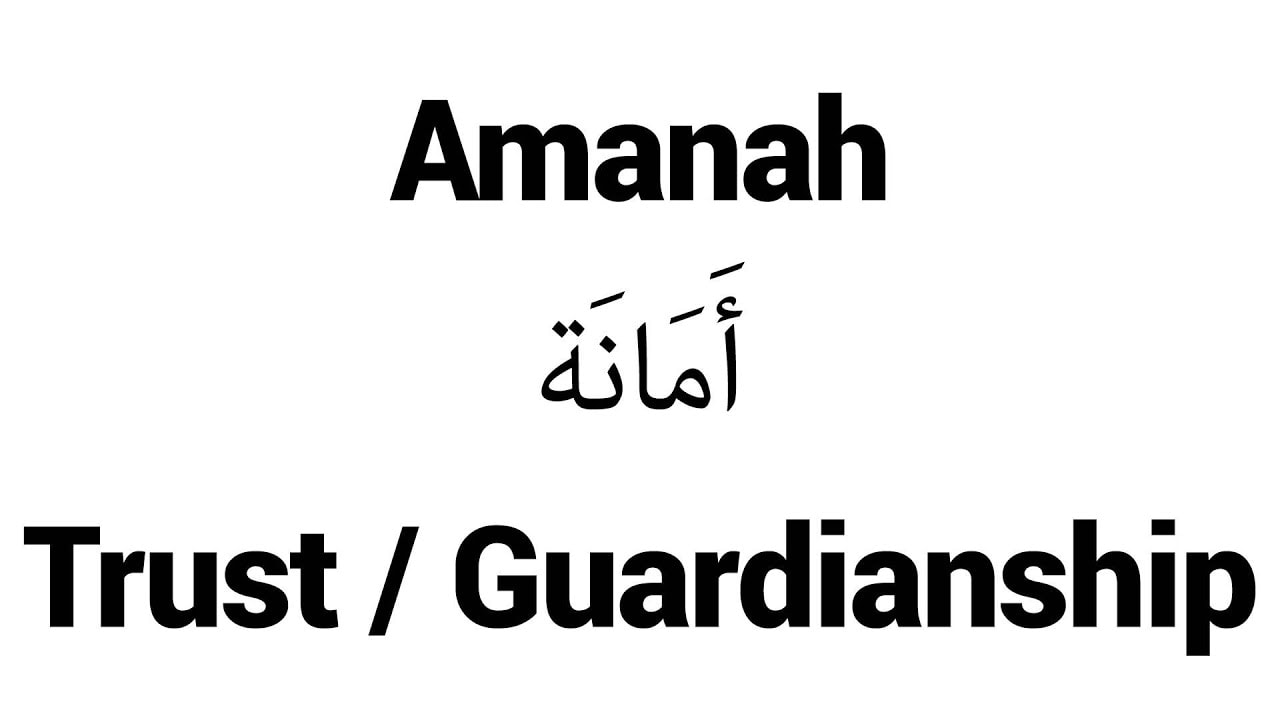 Why only humankind will be judged? If we observe our own creation, the fact is as bright as a daylight that humans are in control of the resources of this planet and make use of them as they wish to. Other creation apart from humans such as animals, plants, birds etc. do not inhabit and make use of the planet as humans. This is the biggest fact that humans are intelligent beings and therefore more worthy of handling this planet on behalf of Allah ﷻ than any other creation of His. This ability of humans is a trust that Allah ﷻ has placed on our shoulders for which we will naturally be accountable. The Quran confirms this for us when Allah ﷻ refers to this burden as Amanah i.e. ‘A Trust’ that He handed over to Adam (alaihi salaam) and his progeny because we have the capacity and intelligence to carry it as opposed to other creation: “Verily, We did offer the trust [of reason and free will] to the heavens, and the earth, and the mountains: but they refused to bear it because they were afraid of it. Yet man took it up, for, verily, he has always been prone to be most wicked, most foolish.”[1] The scholars of Islam say that the wording in the verse “prone to be most wicked, most foolish” means that the one who has the potential to become wicked can also be just and deliver justice and the one who is foolish and ignorant can also carry knowledge and wisdom. This trust makes us sentient and evolutionary beings by providing us the gift of free will and reason with which we have the ability to progress intellectually and spiritually unlike other creation that is stagnant in its nature devoid of the potential to develop. It is one of a kind blessing Allah ﷻ reminds us so we are grateful: "And had it been Our will [that they should not be free to choose between right and wrong], We could surely have given them a different nature [like animals or plants and trees rooted] in their places (or in their instincts), so that they would not be able to move forward, and could not turn back."[2] Therefore the potential in us to act justly and carry knowledge and wisdom is why humankind were handed this trust. After gifting us with intellect and reason, Allah ﷻ send messengers and prophets to remind and explain exactly how we need to take care of that trust. They also made us wary of what are things that can lead towards our destruction in this world, and if not here then definitely we will have to face it in the hereafter, as Allah ﷻ created this life only to test us. A hadith of Prophet Muhammad ﷺ tells us how the amanah has been distributed among humans in any particular nation. It may shed some light on how each of us will be accountable for what is under their authority and answerable based on their individual capacity to discharge their responsibilities: “Each of you is a shepherd and each of you is responsible for his flock. The amir (president) who is over the people is a shepherd and is responsible for his flock (country); a man is a shepherd in charge of the inhabitants of his household and he is responsible for his flock (family); a woman is a shepherdess in charge of her husband's house and children and she is responsible for them; and a man's slave (or employee) is a shepherd in charge of his master's (or employer’s) property and he is responsible for it. So each of you is a shepherd and each of you is responsible for his flock."[2] References: [1] Al Quran 33:72 – Asad Translation [2] Al Quran 36:67 - Asad Translation [2] Sunan Abi Dawud 2928 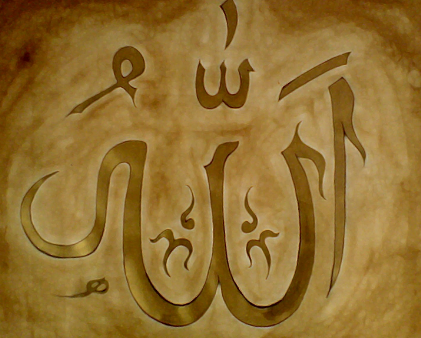 Did Allah create Adam (a.s) with physical senses of body? Indeed Prophet Muhammad ﷺ taught us that Allah ﷻ created Adam in His own image however, this does not mean in physical appearance because Allah ﷻ said about Himself “There is nothing like Him”[1]. There are two prophetic hadith that inform about the creation of Adam (alaihi salaam) being in the image of Allah ﷻ: “…Allah created Adam in His own image (wajh).”[2] In another ones it says, “Allah, the Exalted and Glorious, created Adam in His picture (surah) with His length of sixty cubits.”[3] Before we discuss how Adam (a.s) was created in Allah’s image we first need to understand what do terms like ‘image’ and ‘picture’ imply in the Arabic language. In both ahadith the terms used for ‘image’ and ‘picture’ are wajh and surah. In their most basic meaning these two terms mean ‘face’. But wajh has also been used by Allah ﷻ in the Quran for Himself: “but forever will abide Your Sustainer’s Self (wajh), full of majesty and glory.”[4] Asad comments on this verse and said: “ ‘face’, or ‘countenance’, a term used metonymically in classical Arabic is also used to denote the ‘self’ or ‘whole being’ of a person — in this case, the essential Being, or Reality, of God.” As per Edward Lane’s Arabic-Lexicon the term surah means: “by which a man is especially distinguished, consisting in reason and thought and other distinctive attributes: a quality, an attribute, a property; or a description, as meaning the aggregate of the qualities or attributes.”[5] Since the terms wajh and surah are interchangeable and refer in their wider meaning to the whole being of a person with distinctive qualities and not just ‘a face’ in their basic meaning, it implies that Adam (a.s) and through him all his descendants are carrying within them special qualities and attributes directly from Allah ﷻ that makes them a distinct being as opposed to all other creation. This is confirmed and better understood in the light of a verse of the Quran pertaining to Adam’s creation where Allah ﷻ said to the assembly of angels: “Behold, I am about to create a human being out of clay; and when I have formed him fully and breathed into him of My spirit, fall you down before him in prostration!”[6] The verse teaches that first Allah ﷻ created Adam’s body and then He breathed His ruh (spirit) in to him. The angels through the symbolic act of prostration honored him once the ruh (spirit) of Allah ﷻ was placed in him and not before. This special act of honor from Allah ﷻ explains what makes us a special creation as opposed to all other creations. The attributes of Allah ﷻ placed in to Adam (a.s) and his descendants is due to His ruh (spirit) in our body! These beautiful attributes of Allah ﷻ are also referred as 99 Divine Names, as explained here. These are encouraged and observable in our behavior such as being kind (Al-Rauf), being generous (Al-Karim), being merciful or having mercy, judging righteously (Al-Hakam), establishing and maintaining authority (Al Jabbar), being knowledgeable (Al Aleem), we see and hear and He is All Seeing (Al-Baseer ) and All Hearing (As Sameeh), He is Forbearing and Gentle (Al-Haleem) and so should we. In simple words, humans are supposed to imitate Allah ﷻ is His behavior towards His creation and the potential to imitate Him has been placed within us. This potential to imitate Allah ﷻ can only be achieved through a continuous struggle against the opposing tendencies placed within us called Nafs (evil inclinations of our lower soul) usually translated as “soul” (different from upper soul or spirit). In Islam this struggle is called jihad and is a greater form of struggle. This is one of the purposes of creation of Adam (a.s) and all humankind and explains the prophetic hadith that Adam (a.s) was created in the image of Allah ﷻ. At this point it is also important to mention that there are negative attributes that Allah ﷻ has disliked for Himself and in our daily jihad (struggle) we are to dislike them and actively oppose them. Such as in a hadith e qudsi (sacred tradition) we are told by Prophet Muhammad ﷺ that said Allah ﷻ said: “My Mercy prevails over My anger.”[7] It is due to this that the Prophet ﷺ said: “Anger comes from the devil, the devil was created of fire and fire is extinguished only with water; so when one of you becomes angry, he should perform ablution.”[8] Ablution keeps us calm and purifies us physically which is loved by Allah ﷻ as one His beautiful divine name is The Pure, The Holy (Al Quddus.) In another hadith e qudsi we are informed that Allah ﷻ said: “Verily I have made oppression unlawful for Me and for My servants too, so do not commit oppression.”[9] Since He forbade anger and oppression, we are forbidden to imitate such negative characteristics even if it is a little and all this explains for us the purpose of our creation. As per teachings of Tasawwuf (Islamic Spirituality)the ones who struggle against the negative tendencies and attempt to attain perfection in this manner may reach a status called Al-Insan Al-Kamil [10], “the person who has reached perfection” i.e. a status attained by Prophet Muhammad ﷺ. References: [1] Al Quran 42:11 [2] Sahih Muslim 2612 e [3] Sahih Muslim 2841 [4] Al Quran 55:27 – Asad Translation. [5] An Arabic-English Lexicon by Edward William Lane - Lane 1863 [6] Al Quran 38:71-72 [7] Jami at-Tirmidhi 3543 [8] Sunan Abi Dawud 4784 – Ablution is called wudu which is done five times a day before each obligatory salah. However it is was encouraged by the Prophet ﷺ even outside salah as it keeps one pure. [9] Bulugh al-Maram Book 16, Hadith 1537 [10] In sufi terminology al-Insaan al-kamil means a perfect human being. The prophets and saints are able to reach it after continuous lifelong struggle against the evil tendencies of nafs (soul).  Syrian civilians caught in the middle of conflict Purpose behind trials and difficulties Allah ﷻ says that He created this life for nothing but a test and trial for humankind: “[He] who created death and life to test you [as to] which of you is best in deed - and He is the Exalted in Might, the Forgiving.”[1] The earth with its major and minor sufferings, difficulties and problems is what makes it a perfect testing ground. Had it been a complete peaceful place it would not have fulfilled the purpose of our existence on earth. These difficulties, trials and tribulations more or less that each human experiences are supposed to make them strong and near perfection as long as they exercise patience when facing them and remain content with Allah’s will. Allah ﷻ asks the believers: “Do people think that they will be let go merely by saying: “We believe,” and that they will not be tested?”[2] In this rhetorical question, Allah ﷻ uses the Arabic term fitnah which is translated as ‘test’. As per Lanes dictionary fitnah means: “the melting of gold and of silver in order to separate, or distinguish, the bad from the good.”[3] The example of trials is like the touchstone, and the example of humans that of a gold rock with all its impurities. What does a touchstone do when a goldsmith keeps rubbing it to remove the impurities? It gradually brings out its shine! The purpose of such trials and tests is to purify one and make them polished internally. This internal polish increases our knowledge of Allah ﷻ and assists us to gain spiritual closeness, which helps us to better understand Him and His purpose for our lives. In Islam, the greatest in the sight of Allah ﷻ are the Prophets among humankind that is due to the suffering they bear and patience they display at them. Since they bear the most suffering their status near Allah ﷻ in this world and the hereafter are much greater. After the prophets everyone else is tested according to the level of their faith. A narration of Prophet Muhammad ﷺ explains this: Musab bin Saad (radiAllahu anhu) narrated from his father that a man said: “O Messenger of Allah ﷺ which of the people is tried most severely?” He said: “The Prophets, then those nearest to them, then those nearest to them. A man is tried according to his religion; if he is firm in his religion, then his trials are more severe, and if he is frail in his religion, then he is tried according to the strength of his religion. The servant shall continue to be tried until he is left walking upon the earth without any sins.”[4] Suffering due to calamities, trials etc. whether it befalls the Prophets or any other among the believers, helps them gain higher ranks and proximity to Allah ﷻ in this life and the hereafter. In another prophetic narration it is said that spiritual closeness gained with Allah ﷻ becomes so dearer to some righteous among the believers that when suffering befalls them: “One of them will rejoice at calamity as one of you would rejoice at ease.”[5] A sufi (Islamic) saint was inquired about how he was patient at his suffering, to which he responded: “How can I complain when (it is said in the Quran) : “Allah is with the patient.”[6] The closer they feel to Allah ﷻ the more shining their souls become. They fulfill the purpose of a lamp in darkness. Such righteous ones become the deputies of the prophets on earth. The purpose of suffering is to bring out that shine in us as long as we bear patiently and keep remembering Allah ﷻ. However one very important fact that Quran teaches us about difficulties and trials is that: “Allah does not burden anyone more than they can bear.”[7] References: [1] Al Quran 67:02 – Asad Translation. [2] Al Quran 29:02 [3] Lane 1863 - http://lexicon.quranic-research.net (quranic-research.net) [4] Jami at-Tirmidhi 2398 [5] Sunan Ibn Majah 4024 [6] Al Quran 2:153 [7] Al Quran 2:286 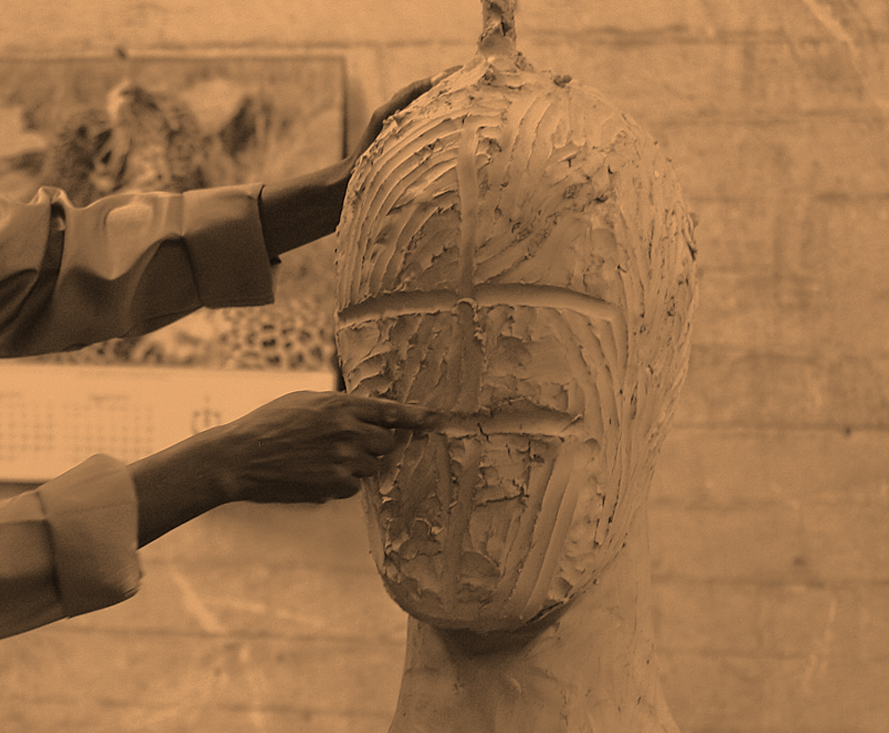 Humankind - A special act of creation The concept that angels are better than humans, would be incorrect according to Islam. Even though the description of the angels and their appearance sounds supernatural and impresses upon human minds such as them having ‘wings’ and made of 'nur (light)’ and traveling faster than the speed of light between the heavens as explained in the section of angels and jinns. The fact that Allah ﷻ made them prostrate humankind is because we are His special creation, created in the best form. If angels were better than humans then Allah ﷻ would have commanded Adam (alaihi salaam) to prostrate before angels and not the other way around: “[For] Your Sustainer said to the angels: ‘Behold, I am about to create a human being out of clay;and when I have formed him fully and breathed into him of My spirit, fall you down before him in prostration!’ Thereupon the angels prostrated themselves, all of them together.”[1] What makes us a special creation is due to His ruh (spirit), infused within us as a result of which we carry the gift of intellect to make the correct choices using our reason and free will. The potential to imitate Allah's divine names is expressed in our behavior when we correctly exercise our reason and freewill; make the right choices with the assistance of divine guidance sent by Allah ﷻ, and keep patient in difficulties while being grateful and content at whatever we have. This struggle is what makes humans honored, it helps us to spiritually and intellectually progress, and is the most important aspect of our creation, something angels do not possess. Once we imitate the lives of the prophets (to the best of our ability) then Allah’s divine attributes (names) are displayed in our behavior such as being forgiving, merciful, kind, and generous. We also display the acts of our creator such as inventing, drawing, building and formation just as He is The Creator (Al Khaliq), The Initiator (Al Bari), The Supreme Fashioner (Al Musawwir). He is the Most Knowledgeable (Al Aleem) and we also display the attribute of learning and gaining knowledge. He is Holy and Beautiful (Al Quddoos) and we too share these characteristics by physically and internally purifying ourselves, our hearts from all that opposes truth and wisdom. One of His attributes is Peace (As Salaam) therefore; we are advised to spread peace (salaam) on earth among His creation and also gain peace by accepting His will i.e. Islam, which means Self-Submission. For more details on this topic please also refer to two more posts: 99 Divine Names of Allah ﷻ & Allah ﷻ Created Adam (a.s) In His Own Image. References: [1] Al Quran 38:71-72 – Asad Translation - Allah ﷻ orders the angels to pay respect to His new creation i.e. Adam. 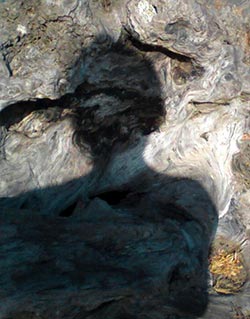 Satan's role in our lives Allah ﷻ is a creator, He creates what He wills and each creation serves its own purpose. No creation on this earth or in the entire universe has been created without a purpose. Humankind has its own purpose to serve, satan has its own purpose to serve, animals, plants, insects etc. they all serve their individual purposes. Satan is one of the jinns (invisible beings), who like humans carry free will to either obey or disobey the will of Allah ﷻ. In Islam Allah ﷻ has the pre-eternal knowledge of His entire creation including satan, and also Adam (alaihi salaam) and his descendants. Satan’s or Adam’s disobedience in the pre-eternal knowledge of Allah ﷻ does not mean the predestination of their acts. Their acts of obedience or disobedience are based on their God given free-will hence the concept of rewards or punishment and blessed or unfortunate, in this life or hereafter. Rewards or punishments, paradise or hellfire in hereafter would make no sense if all acts were predestined. By exercising his free will, satan chose to disobey the commandment to show respect to Adam (a.s) . He became arrogant and decided to disobey when Adam (a.s) and his descendants were honored with the title of Allah’s best creation and to become His successors on earth. The Islamic perspective does not necessitate the creation of satan for humankind test on earth, which even many Muslims mistakenly think. It is very true that satan’s disobedience and challenge to Allah ﷻ to misguide humankind is mentioned in the Quran and fits in the overall picture of humanity’s test on earth. However, that does not in any way imply that satan is our greatest enemy and test. In fact our greatest enemy is our own Nafs (evil commanding soul), the opposing force within each human which invites us towards disobedience of Allah ﷻ (for more info please read The Mystery of Human Soul). Allah ﷻ created duniya[1](materialistic word) as a testing ground in which our Nafs plays the major role of keeping us attached to it and forgetting the hereafter. Yes, satan too is our enemy and contrives to misguide many among humankind and jinns, yet his influence over us in relation to our own nafs is very nominal. The Quran teaches that on the Day of judgment satan will admit his success in misguiding many, but will attribute that success not to his sole efforts, but to our nafs (evil within our soul): “And satan will say when the matter has been concluded (on the day of judgment), ‘Indeed, Allah had promised you the promise of truth. And I promised you, but I betrayed you. But I had no authority over you except that I invited you, and you responded to me. So do not blame me; but blame yourselves (Anfus plural of Nafs). I cannot be called to your aid, nor can you be called to my aid. Indeed, I deny your association of me [with Allah] before. Indeed, for the wrongdoers is a painful punishment.’”[2] Allah ﷻ in His Eternal Mercy has not given satan the free hand to control us, he has no power over us. All he can do is invite us i.e. our souls and if we obey their evil inclinations, then we are led towards our own ruin. But every time we reject the temptation it creates within us to oppose Allah’s will, we achieve 'rewards' and those rewards are ultimate spiritual development the effect of which we see in our lives in the face of increased guidance, faith and nearness to Allah ﷻ and in the hereafter it is seen in the state of higher status in Paradise. Even though satan’s existence plays a vital role in our spiritual and intellectual development yet his existence does not necessitate the purpose of humankind creation. Satan is just another creation of Allah ﷻ like many others and has been created to serve his individual purpose and nothing more. References: [1] In classical Arabic, the term duniya in its broader meaning comprises what we call the temporal world and its temptations as opposed to everlasting hereafter and its blessings. [2] Al Quran 14:22 |
AuthorZaid Shaw Archives
December 2022
Categories |
Proudly powered by Weebly
 RSS Feed
RSS Feed